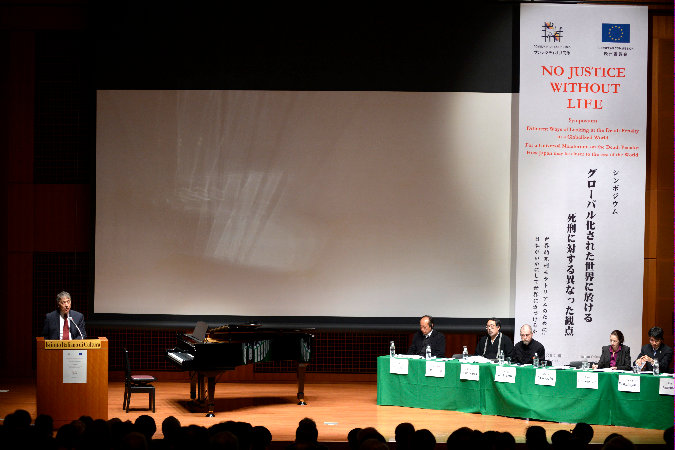 In Hiroshima the lawyers of Takayuki Otsuki, a man of 31 who is now senteced to death for having killed in 1999, he was then only 18 years old, a young woman and her child, asked the revision of the trial on the ground of a new psychiatric examination that speaks about a very difficult childhood that had been seriously marked by abuses. In Hiroshima the lawyers of Takayuki Otsuki, a man of 31 who is now senteced to death for having killed in 1999, he was then only 18 years old, a young woman and her child, asked the revision of the trial on the ground of a new psychiatric examination that speaks about a very difficult childhood that had been seriously marked by abuses.
It is an action to avoid an "injustice" according to the legal pool, in a country as Japan where death penalty still appears to be considered very useful by a majority of the people. In fact according to state sponsored surveys 85 % of the population supports death penalty. In Japan there are still 131 "guests" on death row.
The Community of Sant'Egidio, after some years of contacts, opened a debate on the issue with the Symposium "No Justice Without Life. The Death Penalty in a Globalized World" that was held today at the Istituto Italiano di Cultura of Tokyo (Tokyo Italian Cultural Institute) with the support of the Italian Embassy, the European Commission, the European Union Ambassador and other local organization such as Religious Network Against Death Penalty, Amnesty International Japan, and the Association of Lawyers that at the beginning of the month promoted a protest for the World Day Against Death Penalty.
The initiative is part of the Campaign for a "Global Moratorum on Death Penalty" on which the Community of Sant'Egidio has been working for many years, remined to the audience the Secretary General Alberto Quattrucci, while, according to the spokeperson of the community, Mario Marazziti, "Japan should follow the world trend on the issue".
The Ambassador of the EU, Hans Dietmar Schweisgut, remembered the efforst to "open a dialogue" with Tokyo on a theme that is so sensitive for Europe while Mizuho Fukushima, former minister, leader of the Japan Social Democratic Party and representative of the Parliamentary League for the Abolition of Death Penalty said, in front of various hundreds of participants, that the issue is complex and it should be dealt with with a total moratorium of executions and an always more wide spread debate. In conclusion, it is possible to start a debate on the issue. The Minister of justice himself, Makoto Taki, who had signed 4 death sentences in 2012 and who has just been called bak into sevice by the premeir Yoshihiko Noda, said, a few days ago, that on death penalty "Japan must get out of its isolation and open itself to an international dimension (ANSA)"
See the Photogallery
The Program |

